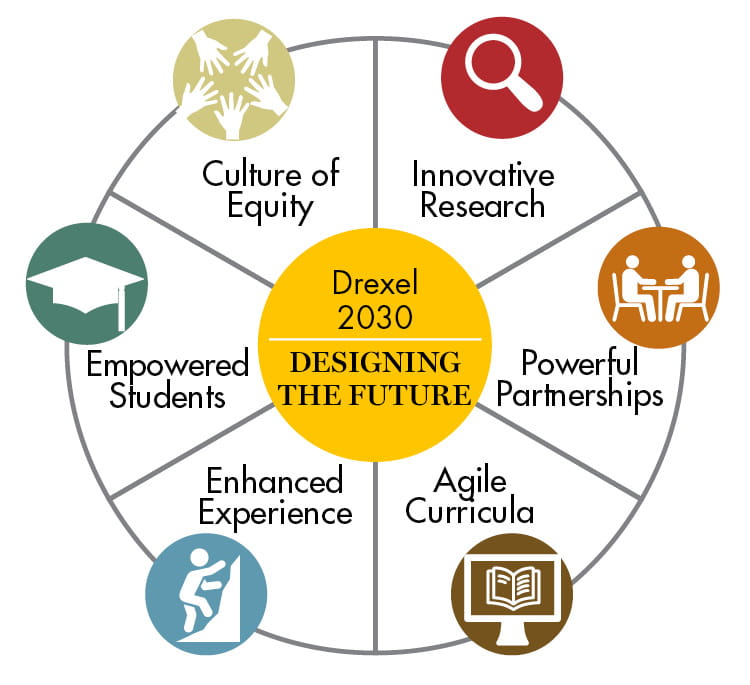
Defining Drexel’s Culture of Inclusion
DIVERSITY IS OUR STRENGTH.
INCLUSION IS OUR VALUE.
BELONGING FOSTERS OUR INNOVATION.
EQUITY IS ESSENTIAL.
At Drexel University, we define diversity as the differences that make us uniquely who we are. We think of these differences at the individual, group, and organizational levels. Individual differences include values, attitudes, personality, and communication styles. Group differences include identities that matter to us and help define us (e.g., ideological, intellectual, economic, gender, ability, sexual orientation, religious, age, racial, cultural, ethnic, visible and invisible disabilities, veteran status, and nationality). Organizational differences include status, rank and positionality as students, faculty, staff, alumni and community partners.
Although diversity by itself is important in any educational setting, we must also consider representation; that is, how well our diversity – at all levels of the organization – reflects the communities in which we live and serve.
To maximize the strength that our diversity brings, we center equity, inclusion and belonging, and incorporate an anti-racism approach to our strategic plan, organizational systems, policies, and structures.
Diversity is defined as having a wide variety of identities represented at Drexel. Identities can include individual differences – like values, attitudes, personality, veteran status and communication style – or group differences – like economic, gender, ability, sex, sexual orientation, religious, age, race, cultural, ethnic, visible and invisible disabilities, and nationality.
We define equity as the process by which we aim to achieve fairness through policies, procedures and access to resources and opportunities. Because some policies and practices have historically and systematically benefited some groups and harmed others – even if unintentionally – equity requires providing varying levels of support at the individual, group and organizational levels. In other words, equitable treatment does not always mean equal treatment.
Inclusion means that everyone’s perspective matters and that people who have been excluded from important discussions historically are now invited into critical conversations. At Drexel University, we recognize that inclusion must be active and intentional, and it requires ongoing self-reflection.
Importantly, all three components of diversity, equity and inclusion are necessary for cultivating belonging, a sense of psychological, physical and emotional safety that affords the ability for each member of the Drexel University community to be their authentic self without fear of judgment. People feel like they belong when they feel connected to and accepted by others.
The active process of identifying and ending racism by changing our organizational systems, policies and structures to redistribute power and resources more equitably among all individuals, both at the personal and systemic levels.
